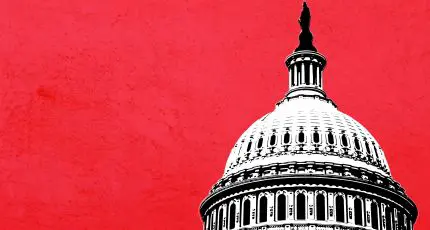There are about to be a lot of antitrust bills taking aim at big tech, and here’s one more. Senator Josh Hawley (R-MO) rolled out
a new bill this week
that would take some severe measures to rein in big tech’s power, blocking mergers and acquisitions outright.
The “Trust-Busting for the Twenty-First Century Act” would ban any acquisitions by companies with a market cap of more than $100 billion, including vertical mergers. The bill also proposes changes that would dramatically heighten the financial pain for companies caught engaging in anti-competitive behavior, forcing any company that loses an antirust suit to forfeit profits made through those business practices.
At its core, Hawley’s legislation would snip some of the red tape around antitrust enforcement by amending the Sherman Act, which made monopolies illegal, and the Clayton Act, which expanded the scope of illegal anti-competitive behavior. The idea is to make it easier for the FTC and other regulators to deem a company’s behavior anti-competitive — a key criticism of the outdated antitrust rules that haven’t kept pace with the realities of the tech industry.
The bill isn’t likely to get too far in a Democratic Senate, but it’s not insignificant. Sen. Amy Klobuchar (D-MN), who chairs the Senate’s antitrust subcommittee,
proposed legislation earlier this year
that would also create barriers for dominant companies with a habit of scooping up their competitors. Klobuchar’s own ideas for curtailing big tech’s power similarly focus on reforming the antitrust laws that have shaped U.S. business for more than a century.
Click to access The%20Trust-Busting%20for%20the%20Twenty-First%20Century%20Act.pdf
The Republican bill may have some overlap with Democratic proposals, but it still hits some familiar notes from the
Trump era of hyper-partisan big tech criticism
. Hawley slams “woke mega-corporations” in Silicon Valley for exercising too much power over the information and products that Americans consume. While Democrats naturally don’t share that critique, Hawley’s bill makes it clear that antitrust reform targeting big tech is one policy era where both political parties could align on the ends, even if they don’t see eye to eye on the why.
Hawley’s bill is the latest, but it won’t be the last. Rep. David Cicilline (D-RI), who spearheads tech antitrust efforts in the House, previously announce his own plans to introduce
a flurry of antitrust reform bills
rather than one sweeping piece of legislation. Those bills, which will be more narrowly targeted to make them difficult for tech lobbyists to defeat, are due out in May.
New antitrust reform bill charts one possible path for regulating big tech
 简体中文
简体中文

